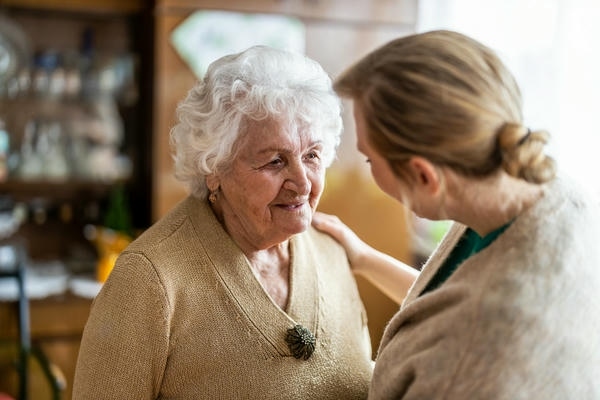In the golden years of life, when the world seems to slow down and the hustle and bustle of youth fades into memory, the importance of human connection becomes more apparent than ever. For many elderly individuals, however, this connection can be elusive, as the threads of social interaction unravel, leaving them isolated and vulnerable. This is the story of Margaret, an elderly woman whose experience echoes that of countless others, and a testament to the power of family support in combating the silent epidemic of social isolation among our aging population.
The Quiet Life of Margaret
Picture Margaret, a vibrant soul in her twilight years, residing in a quaint, unassuming house on a peaceful street. Once filled with the laughter of children and the warmth of family gatherings, the halls of her home now echo with a stillness that seems to magnify the passing of time. Her days, once bustling with purpose and interaction, have mellowed into a monotonous rhythm, punctuated only by the occasional phone call from her grown children, now living lives of their own.
Margaret’s story is not unique; it is a reflection of a pervasive reality faced by many older adults. As the years accumulate and the world seems to move on without them, the specter of social isolation looms large, threatening to erode their mental and physical well-being. It is a silent battle, often fought behind closed doors, but one that carries profound implications for the health and happiness of our elderly loved ones.
The Consequences of Social Isolation
Social isolation, often an unintended consequence of aging, can cast a long shadow over the lives of older adults. Its impact, far from being merely psychological, can manifest in a myriad of ways, affecting both mental and physical health.
The Toll on Mental Well-being
For individuals like Margaret, the lack of regular social interaction can be a breeding ground for emotional distress. Loneliness, that unwelcome companion, can slowly chip away at their sense of belongingness, leaving them vulnerable to the clutches of depression and anxiety. The silence that pervades their days can become a deafening reminder of their disconnection from the world around them, amplifying feelings of worthlessness and despair.
Studies have consistently shown that isolated seniors are at a higher risk of developing mental health issues, with rates of depression and anxiety soaring among those who lack regular social engagement. The absence of a supportive network, someone to share their joys and sorrows with, can leave them feeling adrift in a sea of their own thoughts, with no anchor to ground them.
The Physical Consequences
The effects of social isolation, however, extend far beyond the realm of the mind. The body, too, bears the brunt of this silent affliction. Research has revealed that socially isolated elderly individuals are more likely to suffer from chronic health conditions such as heart disease, hypertension, and cognitive decline.
The mechanisms behind this connection are complex, but the absence of regular social interaction can contribute to a sedentary lifestyle, depriving the body of the physical and mental stimulation it needs to thrive. Engaging in social activities, whether it’s a gentle stroll in the park or participating in a community event, often involves physical movement, which is crucial for maintaining health and vitality in the later years of life.
Moreover, the lack of social support can make it harder for older adults to access healthcare services, adhere to medical treatments, and maintain healthy lifestyle habits. Without the encouragement and assistance of loved ones, they may struggle to prioritize their own well-being, leading to a decline in their overall health.
The Power of Family Involvement
In the face of these challenges, family support emerges as a beacon of hope, a lifeline that can help older adults like Margaret weather the storms of isolation and maintain their sense of connection to the world around them.
The Importance of Regular Communication
For Margaret, the sound of her children’s voices over the phone is a balm for her soul, a reminder that she is loved and valued. Regular communication, whether it’s through phone calls, video chats, or in-person visits, can be a powerful antidote to the loneliness that plagues many older adults.
These interactions, no matter how brief, provide a sense of emotional support and help elderly individuals feel connected to their loved ones. Even short, frequent check-ins can alleviate feelings of isolation, reminding them that they are not forgotten, that their presence still matters in the lives of those they hold dear.
Inclusive Family Activities
Beyond regular communication, involving elderly family members in gatherings, celebrations, and everyday activities can foster a deep sense of belonging. For Margaret, being invited to her granddaughter’s birthday party or joining her family for a Sunday dinner can be a highlight of her week, a chance to feel like an integral part of the family unit once more.
These moments of inclusion, whether it’s a simple outing to the grocery store or a festive holiday celebration, can provide a much-needed break from the monotony of isolation. They offer opportunities for meaningful interaction, laughter, and the creation of new memories, all of which are essential for maintaining emotional well-being in the later years of life.
Encouraging Hobbies and Interests
Family members can also play a crucial role in supporting the hobbies and interests of their elderly loved ones. For Margaret, who once found great joy in tending to her garden, the physical limitations of age have made it challenging to pursue her passion. However, with the help of her children, who visit on weekends to assist with the heavy lifting and planting, she can continue to find purpose and fulfillment in nurturing her beloved flowers.
Encouraging and participating in these activities not only provides a sense of continuity and purpose for older adults but also creates opportunities for bonding and shared experiences. Whether it’s discussing a favorite book, working on a puzzle together, or engaging in a cherished hobby, these moments of connection can be a powerful buffer against the loneliness that often accompanies aging.
Enhancing Mental Health Through Family Support
The role of family support in promoting mental well-being among the elderly cannot be overstated. By providing emotional support, cognitive engagement, and access to professional help when needed, families can help their older loved ones navigate the challenges of aging with resilience and grace.
The Power of Emotional Support
For Margaret, having her children lend a listening ear and offer words of encouragement can be a lifeline in moments of emotional distress. Knowing that she has a safe space to share her feelings, without fear of judgment or dismissal, can be incredibly validating and healing.
Families should strive to create an environment of open communication, where their elderly loved ones feel comfortable expressing their thoughts and emotions. By validating their experiences, offering reassurance, and simply being present, family members can help alleviate the psychological burden of isolation and provide a sense of emotional security.
Keeping the Mind Active
Engaging in mentally stimulating activities is another way families can support the mental well-being of their elderly loved ones. For Margaret, who has always had a keen interest in history, discussing current events and reminiscing about the past with her children can be a source of great joy and intellectual stimulation.
By participating in activities that challenge the mind, such as puzzles, games, or thought-provoking discussions, families can help maintain cognitive function and stave off the negative effects of isolation. These shared moments of mental engagement not only provide a sense of connection but also contribute to overall brain health and resilience.
Seeking Professional Help
Despite the best efforts of family members, there may be times when professional help is necessary to address the mental health needs of elderly individuals. For Margaret, whose feelings of loneliness have begun to take a toll on her emotional well-being, the support of a therapist or counselor can be invaluable in providing additional strategies for coping with the challenges of isolation.
Families should be attentive to signs of depression, anxiety, or other mental health concerns in their elderly loved ones and be proactive in seeking professional assistance when needed. By working collaboratively with mental health professionals, families can ensure that their older loved ones receive the comprehensive support they need to thrive.
The Vital Role of Caregivers
While family involvement is crucial in combating social isolation among the elderly, the role of caregivers cannot be overlooked. These dedicated individuals, whether they are professional caregivers or family members taking on caregiving responsibilities, play a vital role in facilitating connections and promoting social engagement.
Coordinating Visits and Communication
Caregivers can serve as a bridge between elderly individuals and their families, helping to coordinate regular visits and facilitate communication. For Margaret, whose children live far away, her caregiver’s assistance in setting up video chats and sending updates on her well-being has been a lifeline, ensuring that she remains connected to her loved ones despite the distance.
By taking on the logistical challenges of scheduling and technology, caregivers can help remove barriers to communication and ensure that elderly individuals have consistent opportunities for social interaction.
Organizing Social Activities
Caregivers can also play a crucial role in organizing and accompanying seniors to social events and community activities. For Margaret, who has always enjoyed attending her local senior center’s book club, her caregiver’s assistance in arranging transportation and providing support during the meetings has been instrumental in helping her maintain this cherished social connection.
By encouraging participation in clubs, groups, and events that align with the interests of the elderly individual, caregivers can help foster a sense of belonging and purpose, combating the isolation that often comes with aging.
Providing Emotional Support and Companionship
Beyond the practical aspects of care, caregivers can offer emotional support and companionship to the elderly individuals they serve. For Margaret, the warm smile and gentle conversation of her caregiver during their daily interactions have become a source of comfort and connection, helping to alleviate the loneliness that often pervades her days.
By being attentive to the emotional needs of the elderly, offering a listening ear, and engaging in meaningful conversations, caregivers can provide a sense of companionship that is essential for mental and emotional well-being.
Supporting Independence and Autonomy
Caregivers also play a vital role in supporting the independence and autonomy of elderly individuals. For Margaret, who takes great pride in her ability to manage her own medications and maintain her daily routines, her caregiver’s encouragement and assistance in these tasks has been crucial in preserving her sense of self-efficacy and control.
By fostering independence and respecting the agency of elderly individuals, caregivers can help promote a sense of purpose and self-worth, which are essential components of overall well-being.
Conclusion
As we reflect on the story of Margaret and the countless others like her, the importance of family support and social connection in the lives of elderly individuals becomes abundantly clear. The silent epidemic of social isolation, with its far-reaching consequences for mental and physical health, demands our attention and action.
By prioritizing regular communication, inclusive family activities, and the encouragement of hobbies and interests, families can help create a supportive network that buffers against the loneliness and disconnection that often accompany aging. Caregivers, too, play an essential role in this endeavor, facilitating connections, organizing social engagements, and providing emotional support and companionship.
It is through these collective efforts, the small gestures of love and attention, that we can help our elderly loved ones like Margaret maintain a sense of belonging, purpose, and vitality in their golden years. Every phone call, every shared meal, every moment of laughter and connection, is a testament to the power of human interaction in promoting health, happiness, and resilience.
As a society, we must recognize the value of our aging population and the importance of fostering strong, supportive relationships that span the generations. By working together, families, caregivers, and communities can create a world where no elderly individual feels forgotten or alone, where the threads of connection remain strong and vibrant, weaving a tapestry of love, support, and understanding.
In the end, it is the simple act of being present, of offering our time, our attention, and our hearts, that can make all the difference in the lives of our elderly loved ones. Let us embrace this responsibility with compassion and dedication, ensuring that the golden years are filled with the warmth of human connection and the joy of being truly seen and cherished.





